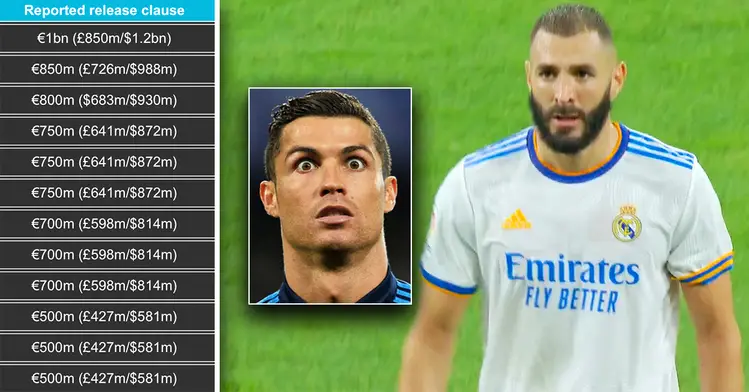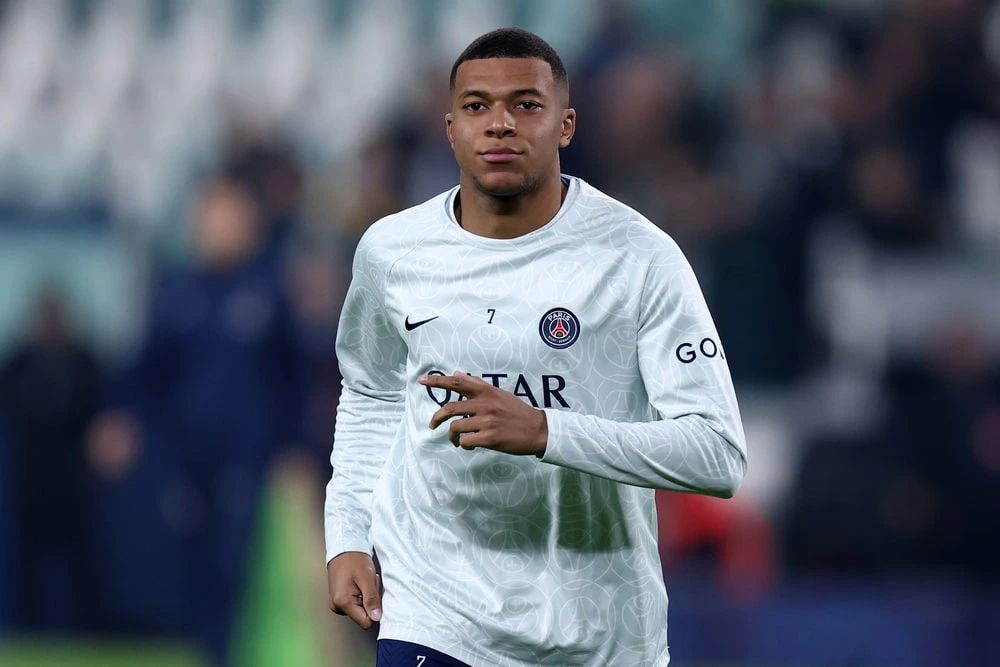Football
What is a buyout clause in soccer
Are you a soccer fan who gets lost in the whirlwind of transfer season? This blog post will unravel the mysteries surrounding buyout clauses, shedding light on their importance and how they shape the thrilling landscape of player transfers.
Definition and purpose of a buyout clause in soccer
1. What is buyout clause?
A buyout clause, also known as a release clause or a termination clause, is a contractual agreement between a player and their club that allows the player to leave the club if certain conditions are met. In soccer, these clauses have become increasingly popular in player contracts and have played a significant role in many high-profile transfers.
Buyout clauses were first introduced in Spain due to the “Ley Bosman” ruling in 1995, giving players more freedom and prompting clubs to use buyout clauses to retain control over their assets. Over time, other leagues and countries have adopted this practice, making it a common feature of player contracts worldwide.
2. Why Do Clubs Include Buyout Clauses?
The purpose of a buyout clause is to provide both the player and the club with some level of security and control over their future. For players, it offers them an opportunity to negotiate better wages or move on to a more competitive team if they feel undervalued at their current club. On the other hand, for clubs, it acts as a form of protection against losing valuable players without being adequately compensated.

In simpler terms, a buyout clause is like an escape route for both parties should there be any dissatisfaction with regards to contract terms. It provides players with greater bargaining power during negotiations and gives clubs assurance that they will not lose key players without warning.
How do buyout clauses work?
The inclusion of buyout clauses in soccer contracts has become increasingly common in recent years, especially for high-profile players. This is because it provides both the players and clubs with certain benefits and protections.
Firstly, buyout clauses give players more control over their future career opportunities. By having a predetermined price set for their departure from the club, players have the ability to negotiate with other teams without being restricted by their current contract terms. This gives them more bargaining power and allows them to potentially move to a better team or league if they desire.
On the other hand, buyout clauses also benefit clubs by providing them with financial security. In cases where there is high demand for a player’s transfer, having a buyout clause can ensure that the club receives fair compensation for losing one of its key assets. It also acts as deterrent against potential poachers who may try to approach the player without going through proper channels.
How exactly do buyout clauses work?
Firstly, it is important to note that not all soccer contracts include this provision – it is usually negotiated between the player and his/her agent and included as part of their contract terms. The buyout clause will specify the amount that needs to be paid by any interested club in order to buy out the player’s contract.
In most cases, the buyout clause amount is set at a very high price, often in the millions or even tens of millions, in order to protect the interests of both the player and the club. This also ensures that only clubs with significant financial resources will be able to afford such a transfer.
If another club is interested in buying out a player’s contract, they must first negotiate with the player’s current club and agree on a transfer fee. Once this fee has been agreed upon, it is then up to the buying club to pay the specified amount for the player’s release. Only after this payment has been made can the player leave their current team and join their new one.

It is worth noting that buyout clauses are not always triggered by clubs looking to sign a player. In some cases, they can also be activated by players themselves, who may want to leave their current team for various reasons (e.g., lack of playing time, disagreements with management). However, in these situations, it is still up to the buying club to pay the specified amount in order for the transfer to go through.
Examples of high-profile buyout clauses in soccer
Buyout clauses can vary greatly depending on the player’s skill level, reputation, and market value. Here are some examples of high-profile buyout clauses in soccer:
1. Lionel Messi – FC Barcelona
The Argentine superstar has a whopping buyout clause of €700 million ($837 million). This astronomical amount was set by Barcelona after dealing with interest from other top clubs over the years. It has a clause that prevents him from leaving unless the offer is too good to refuse.
2. Neymar Jr – Paris Saint-Germain
Neymar became the most expensive player in history in 2017 after his transfer from Barcelona to Paris Saint-Germain for €222 million. PSG included a €300 million buyout clause in their record-breaking deal, making it one of the highest in soccer history.
3. Kylian Mbappé – Paris Saint-Germain

Another player at Paris Saint-Germain, French sensation Kylian Mbappé also has a significant buyout clause set at €180 million ($215 million). This high amount was agreed upon when he made his move from AS Monaco to PSG in 2018 and is meant to protect the club from losing their star player.
These are just some examples of high-profile buyout clauses in soccer, but there are many others out there set for top players around the world. These clauses not only protect the interests of the clubs, but also serve as a measure of a player’s value and market demand.
Impact of buyout clauses on player contracts and transfers
1. Transfer fees
One of the main impacts of buyout clauses is their influence on transfer fees. When a player signs a contract with a buyout clause included, it essentially sets a minimum price for that player’s transfer. This means that even if the club does not want to sell the player, they are obligated to do so if the buyout clause is met. This can lead to inflated transfer fees for players who have high-value buyout clauses included in their contracts.
2. Security
On the flip side, buyout clauses can also provide security for both players and clubs involved in transfers. For players, having a buyout clause means that they have some control over their future and cannot be held against their will by a club that wants to keep them. It also ensures that they will receive fair compensation should they decide to leave for another club.
For clubs, including a buyout clause in contracts allows them to protect their investments in players. If a highly valued player suddenly wants to leave or receives an offer from another team, the club knows that they will receive compensation equal to or higher than what was agreed upon in the buyout clause.
3. Manipulation
Another impact of buyout clauses on player contracts and transfers is the potential for manipulation. Clubs use high buyout clauses in player contracts to prevent other teams from making offers. High buyout clauses can prevent smaller clubs from signing top players due to the expensive transfer fees.

4. Tension
In addition, buyout clauses can also create tension between players and their clubs. If a player becomes unhappy at their current club and wants to leave, but the club is unwilling to sell them for less than the buyout clause amount, it can lead to disputes and strained relationships.
Conclusion: the role of buyout clauses in modern soccer industry
In recent years, buyout clauses have become a hot topic in the world of soccer. In this section, we will discuss the importance and impact of buyout clauses in modern soccer industry.
One major reason for the prevalence of buyout clauses in modern soccer industry is the ever-growing influence of agents. Agents are important in contract negotiations and often push for high buyout clauses to secure financial gain for themselves and their clients. These clauses also give them leverage in future negotiations with clubs.
Another factor contributing to the popularity of buyout clauses is the influx of wealthy owners into European football clubs. Team owners are willing to pay high transfer fees and include buyout clauses in contracts for top players to improve their team’s performance and gain global attention.
In addition, buyout clauses have also played a role in creating a more balanced playing field in European football. The introduction of buyout clauses has given smaller clubs more bargaining power in negotiations and allowed them to keep their top players from being poached by larger clubs with more financial resources.
On the other hand, buyout clauses have also received criticism for contributing to inflated transfer fees and promoting player greed. The increasing transfer fees in soccer raise concerns about the industry’s sustainability and prioritize money over talent. High buyout clauses also restrict player mobility and limit their options for career advancement.
In conclusion, buyout clauses play a crucial role in modern soccer industry as they provide financial security for owners and agents, bring balance to transfer negotiations, but also contribute to inflated transfer fees and restrict player mobility.
FAQs
The trigger for this clause can vary, but it is usually activated when another club makes an official offer to buy the player or when certain performance-based conditions are met.
A release clause, also known as a buyout clause, is a stipulation in a player’s contract that allows them to leave their current team if another club pays a specific amount of money set by the contract.
Yes, a player in the world of football has the option to decline a transfer to another team.





